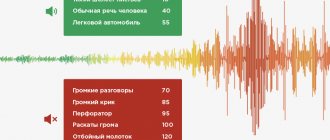28.04.2021
On April 26, 2021, the Constitutional Court of the Russian Federation “allowed” the courts to foreclose on the only housing, and also obliged the legislator to enshrine the right of creditors to claim the debtor’s only housing in the law (pointing out the need to adjust paragraph 2 of part 1 of Article 446 of the Civil Procedure Code of the Russian Federation, which now establishes property immunity for the debtor’s only home). This resolution caused a storm of discussion in the professional legal community and panic among thousands of debtors, who until recently were confident that their only home could not be sold for settlements with creditors both within the framework of enforcement proceedings and in the bankruptcy procedure of an individual. Our free hotline on personal bankruptcy issues (8-800-333-89-13) was “cut off” with questions:
- I'm going through bankruptcy proceedings. Due to changes in Article 446 of the Code of Civil Procedure of the Russian Federation, will my apartment now go under the hammer?
- I have a debt to banks, which I am gradually paying off according to a court decision through the bailiff service. I read in the news that now the banks will not wait for me to pay off the debt for 5 years, and can take my home for the debt, giving me a smaller home in return.
- My wife got an apartment from her parents. Can she be taken away for my debts?
Get a free consultation
People’s fear of losing a “roof over their head” is understandable. The problem of Russians' debts is large-scale. Currently, millions of citizens of the Russian Federation have overdue debts to banks, microfinance organizations, the tax service, individuals, etc. About 200 thousand of them are currently undergoing bankruptcy proceedings for individuals. If previously, people who went through the bankruptcy procedure and were freed from debt as a result of it (for reference: since 2015, more than 200,000 citizens have been completely freed from their debts through the bankruptcy procedure for individuals), it was extremely rare to have to part with any property, because . The overwhelming number of bankrupts, if they have property, are either household items or their only home, but now the situation may change:
- Most likely, in the near future, amendments will be made to Article 446 of the Code of Civil Procedure of the Russian Federation, which ensured the inviolability of the only home.
- Resolution of the Constitutional Court of the Russian Federation No. 15-P dated April 26, 2021 “on the impact of the only housing” will serve as a source for creditors to apply to the court in order to foreclose on the only housing, both as part of enforcement proceedings and as part of bankruptcy procedures. In the case of verifying the constitutionality of the provisions of paragraph two of part one of Article 446 of the Civil Procedure Code of the Russian Federation and paragraph 3 of Article 213.25 of the Federal Law “On Insolvency (Bankruptcy)” in connection with the complaint of citizen I.I. Revkova" +
- If earlier the courts very rarely took responsibility and, despite the property immunity prescribed in the law, still “aulded” the only housing (subject to the debtor’s creditors providing other housing that met the standards for living space per family member), now, Most likely, the number of such cases will increase, because courts in their judicial acts on foreclosure on the only housing will be able to refer to the Resolution of the Constitutional Court of the Russian Federation.
For what reasons can the bank take away the apartment?
If the mortgage loan amount has not yet been fully repaid, the lender may demand that the owner of the apartment taken on credit return it to the bank. Such bank actions are possible if the borrower:
- violates contract terms
. In accordance with the law on mortgages, such actions by a credit institution are possible if it becomes known that the client has mortgaged the property to another lender without its knowledge; - violated the rules for repairing living space
or if, due to his negligence, the apartment became unsuitable for living in; - violated home insurance obligations
; - decided to sell the apartment
without obtaining permission from the bank for these actions; - did not make monthly payments for 3 months
more than 3 times during the year; - has mortgage debt
amounting (in practice) to over 80% of the cost of the loan apartment.
Bankruptcy with a military mortgage
Military mortgage is a special case of a mortgage loan with government support, in which housing is purchased at the expense of two organizations - the bank and Rosvoenipoteka. Accordingly, dismissal from military service leads to the formation of obligations to both organizations at once.
If the debtor is declared bankrupt, the property is sold to pay off the debt, but one nuance must be taken into account. A serviceman becomes the owner of a mortgaged home only after 20 years of military service. Until this moment, the state is considered the owner of the property, so the apartment cannot be sold to pay off the debt.
Is it possible to evict a large family?
If the family living in the mortgaged apartment has many children, the judicial authority may take the side of the defendant, but in accordance with legislative norms, the status of having many children is not a basis for mitigating the decision to evict the debtor and his family members from this living space.
If the square meters purchased on credit are the only ones, and minor children live in it, the court has the right to issue an order to the borrower not to evict from it. This allows the court to establish a moratorium on the seizure of real estate for one year.
The borrower will have to begin immediately repaying the debts on the loan and pay off any overdue payments on time. If after a year the mortgage debts are not paid, the bank has every right to evict a large family from such housing.
Benefit
Sometimes eviction from an apartment can be beneficial for the owner . In particular, this is possible when it comes to relocating emergency housing.
According to Russian legislation, the state must provide owners of apartments in a dilapidated building with other housing or pay financial compensation, which should be enough to purchase a new living space.
Even if the apartment is not municipal, but is privately owned by the owner, the state has the right to take away the living space from its owner. To avoid such a fate, the owner must be responsible in paying for housing and communal services, as well as repaying other debts (for example, loans or alimony). If a citizen does not violate the laws of the Russian Federation, his right to real estate will remain inviolable.
Can a small child be evicted from a mortgaged apartment?
If the holder of the pledge applies to the court to collect funds for the property being pledged, he has the right, by decision of the court, to evict the owners of such housing without taking into account any circumstances. Property, according to the law, is collateral and must be transferred to the creditor to pay debts.
Eviction of a family with a minor child from a mortgaged apartment is legal. If there is a debt to the lender, the mortgage loan agreement is terminated, the bank evicts everyone who lives in such an apartment along with a minor child. The presence of minor children does not prevent the creditor from exercising the right to receive his funds back. The bailiff, in accordance with the existing court decision, must remove the children from registration with the Federal Migration Service.
The bank is not obliged to provide alternative housing to a minor child. In this case, the debtor has one option - to contact the municipal authorities in order to recognize him as poor.
The state can help provide social housing under one of the state programs.
Official website of the Supreme Court of the Russian Federation
The Judicial Collegium for Civil Cases of the Supreme Court of the Russian Federation reviewed the decision of its colleagues in the dispute over debt collection. The Supreme Court, having studied the case, answered a question that worries many people - is it possible to take away the debtor’s only home if he has no other property? And if it’s possible to take away housing, how can you do it without breaking the law?
Our story began in Krasnodar. There, a certain citizen took a loan of 3 million rubles from a friend at interest. The loan was confirmed by a certificate attached to the receipt confirming the right of this citizen to inherit according to the law. The inheritance was to be an apartment.
But something went wrong in the borrower’s life, and she did not repay the loan on time. Constant reminders of the debt also did nothing. Then her creditor went to court. He asked the court in a statement of claim to recover the amount of debt and interest from the citizen. The court made this decision to satisfy the claim. When it came into force, enforcement proceedings were initiated. But it was not possible to find any property that could be foreclosed on.
Therefore, the enforcement proceedings were completed, and the writ of execution was returned to the claimant. All the efforts were in vain - the court’s decision did not change anything.
Then the offended creditor went to court again. This time with a claim “for foreclosure on the inheritance” of his debtor. After all, she attached the property as security for repayment of the debt - a certificate of inheritance of the apartment. If you have no money, let him give it away as an apartment.
The debtor, for her part, began to challenge the conclusion of the pledge agreement. According to her, from the literal contents of the receipt for the loan, it does not at all follow that she took the money as security for a “real estate asset.” According to the citizen, the subject of the mortgage was not indicated there, its assessment was not carried out, and the state registration of the pledge provided for by law was not carried out.
The claim of the creditor, upset by this turn of events, was considered by the Prikubansky District Court of Krasnodar. And he refused the creditor’s claim. The court, in its refusal decision, proceeded from the fact that the disputed housing “is the only one suitable for habitation,” which means that foreclosure cannot be taken against it.
The Krasnodar Regional Court, to which the loser complained, overturned the decision of the court of first instance and met the citizen's demands halfway.
In the event of failure to fulfill an obligation, the pledgee does not acquire the subject of pledge (in our case, an apartment), but the right to receive what is his from the value of the subject of pledge, which is sold for this purpose
The Judicial Collegium for Civil Cases of the Krasnodar Regional Court did not simply decide to transfer the apartment to the claimant and recognize his ownership of it.
The appeal also recovered from the citizen in favor of the debtor 1,140,974 rubles for the difference between the amount of the collected debt and the cost of the apartment, determined on the basis of a merchandising examination. At the same time, the judicial panel proceeded from the fact that the debtor lady herself confirmed the loan with her inherited property in the receipt, that is, she actually indicated this residential premises as collateral.
This time, the losing side rushed to appeal the court's decision. And she complained to the Supreme Court. When the case came to the Judicial Collegium for Civil Cases of the Supreme Court of the Russian Federation, where the debtor complained, its Judicial Collegium for Civil Cases drew attention to the following important circumstance.
It sounds like this. The pledgee himself, in the event of non-fulfillment or improper performance of the obligation secured by the pledge, acquires not the subject of the pledge (in our case it turned out to be an apartment), but the right to receive satisfaction from the value of the subject of pledge, which is sold for this purpose.
Consequently, the Judicial Collegium for Civil Cases of the Supreme Court of the Russian Federation emphasized, according to the law, foreclosure on housing should “be carried out by selling it at public auction with determining the initial sale price.”
But the colleagues of the judges of the Supreme Court - the judicial panel for civil cases of the Krasnodar Regional Court did not take into account this most important circumstance and made a decision to transfer the apartment into the ownership of a citizen-creditor, bypassing the public auction.
And this is unacceptable by law. Of course, in some cases, satisfaction of the creditor's claim on the obligation secured by the pledge may be “carried out by transferring the subject of the pledge into the ownership of the pledgee.” The Supreme Court recalled that paragraph 1 of Article 334 of the Civil Code of the Russian Federation speaks about this. But in our case, the appeal - the Krasnodar Regional Court - did not indicate this.
Another serious point that was emphasized by the Supreme Court of the Russian Federation in this case.
The appeal in its decision also did not cite the law that it was guided by when it transferred the collateral, that is, the debtor’s apartment to our creditor.
In addition, according to the Judicial Collegium of the Supreme Court of the Russian Federation, the appeal should have established the nature of the legal relations that arose between the parties to this dispute and dealt with the nature of the obligations assumed by the parties. Simply put, look at what was offered as collateral for the loan and whether the inherited apartment could be such collateral. And if it could, then what conditions must be met.
No less important is the main point - what does the creditor receive in such cases, real housing in the form of a finished apartment or only compensation from the living space sold at auction.
An explanation of such subtle points may be useful to citizens who give money as collateral or who themselves are looking for the amounts they need, offering a variety of real estate options as collateral.
Therefore, the Judicial Collegium for Civil Cases of the Supreme Court of the Russian Federation canceled the appeal ruling and sent the case for a new trial.
Text: Natalia Kozlova
Rossiyskaya Gazeta - Federal Issue No. 284(8042)
Is it possible to evict disabled people?
A disabled person can be evicted for mortgage debts in accordance with legal grounds. If the mortgaged living space is to be sold by the bank, its owner will be changed. The new owner of the property has every right to expel all citizens living in the living space he purchased. It does not matter whether the residents are citizens with disabilities or minor children.
Funds from the sale of mortgage real estate will be used to pay off the debt, unpaid interest, and costs of participating in the trial. The remaining amount must be returned to the borrower. If these funds are sufficient, you can use them to purchase housing that has a lower price.
When is there a risk of losing a privatized apartment?
The owner of a privatized apartment has not only rights, but also responsibilities . In particular, he must pay utilities and pay for the maintenance of living space. As long as payments are made regularly, the apartment owner retains the right to inviolability of housing. But if the amount of debt for rent is impressive, a court decision may be made to return the property to the state fund.
In addition, the basis for such a decision may be large alimony arrears, identified facts of illegal redevelopment and other reasons.
Participation of the prosecutor in the process
The prosecutor can take part in resolving disputes in accordance with Article 45 of the Code of Civil Procedure of the Russian Federation. Like guardianship authorities, he is not vested with the right to cancel or delay the eviction of minors from mortgaged housing. This possibility may arise if it is determined that there were violations on the part of the bank. But every year there are fewer such precedents, since mortgages are one of the most popular types of loans that bring decent income to lenders. Lawyers working in banking institutions have already accumulated extensive experience in matters related to working with debtors and their eviction from mortgaged housing. Therefore, in most cases they are well prepared for litigation and in most cases they win in court. The prosecutor takes part in the court as an observer, and cannot help the debtor, whether he has children or a disabled person in the family, stay in the mortgaged housing.








